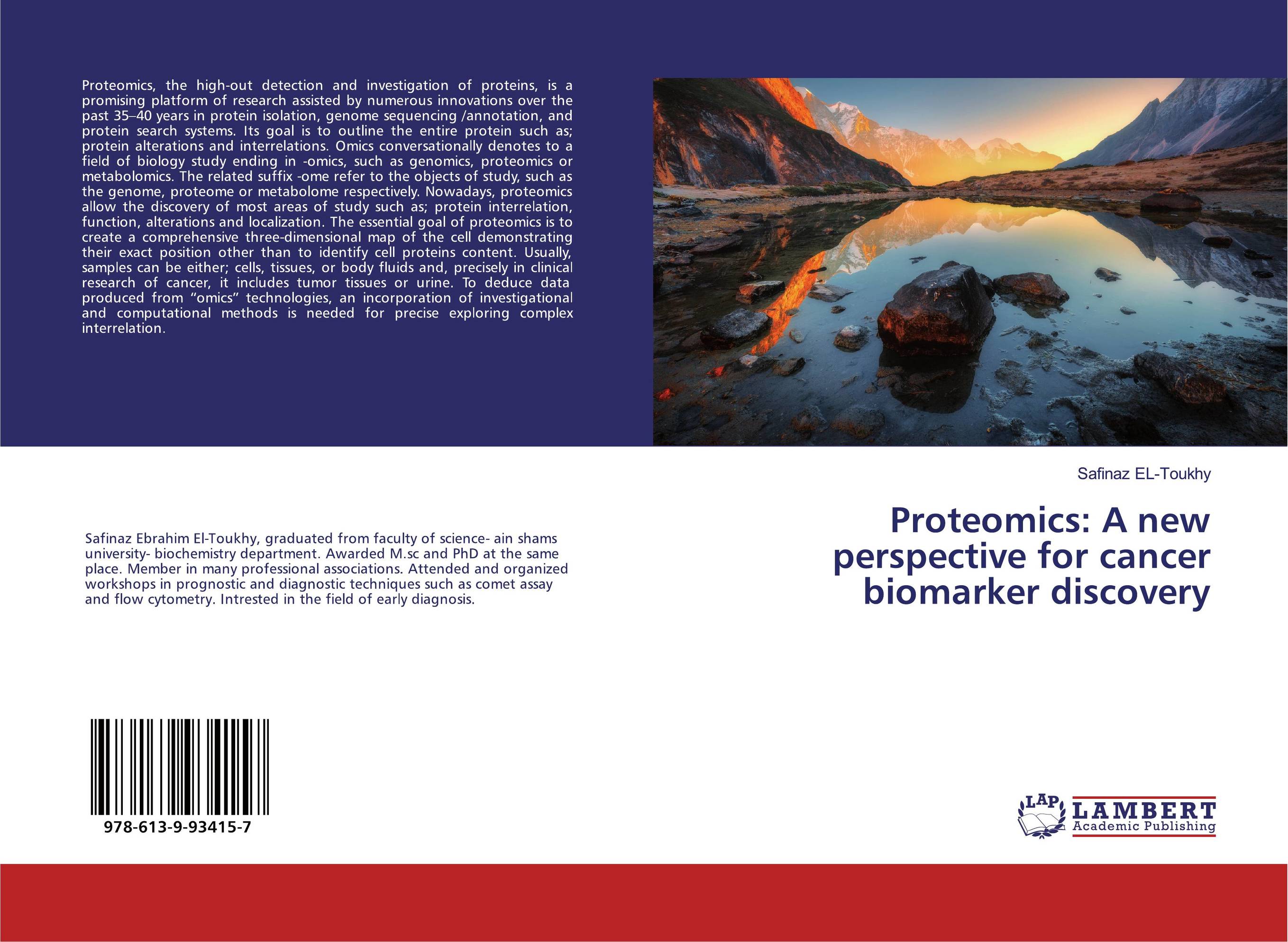| Поиск по каталогу |
|
(строгое соответствие)
|
- Профессиональная
- Научно-популярная
- Художественная
- Публицистика
- Детская
- Искусство
- Хобби, семья, дом
- Спорт
- Путеводители
- Блокноты, тетради, открытки
Proteomics: A new perspective for cancer biomarker discovery.

В наличии
| Местонахождение: Алматы | Состояние экземпляра: новый |

Бумажная
версия
версия
Автор: Safinaz El-Toukhy
ISBN: 9786139934157
Год издания: 2018
Формат книги: 60×90/16 (145×215 мм)
Количество страниц: 72
Издательство: LAP LAMBERT Academic Publishing
Цена: 23635 тг
Положить в корзину
| Способы доставки в город Алматы * комплектация (срок до отгрузки) не более 2 рабочих дней |
| Самовывоз из города Алматы (пункты самовывоза партнёра CDEK) |
| Курьерская доставка CDEK из города Москва |
| Доставка Почтой России из города Москва |
Аннотация: Proteomics, the high-out detection and investigation of proteins, is a promising platform of research assisted by numerous innovations over the past 35–40 years in protein isolation, genome sequencing /annotation, and protein search systems. Its goal is to outline the entire protein such as; protein alterations and interrelations. Omics conversationally denotes to a field of biology study ending in -omics, such as genomics, proteomics or metabolomics. The related suffix -ome refer to the objects of study, such as the genome, proteome or metabolome respectively. Nowadays, proteomics allow the discovery of most areas of study such as; protein interrelation, function, alterations and localization. The essential goal of proteomics is to create a comprehensive three-dimensional map of the cell demonstrating their exact position other than to identify cell proteins content. Usually, samples can be either; cells, tissues, or body fluids and, precisely in clinical research of cancer, it includes tumor tissues or urine. To deduce data produced from “omics” technologies, an incorporation of investigational and computational methods is needed for precise exploring complex interrelation.
Ключевые слова: proteomics- MALDI- Tandem mass- microarray



